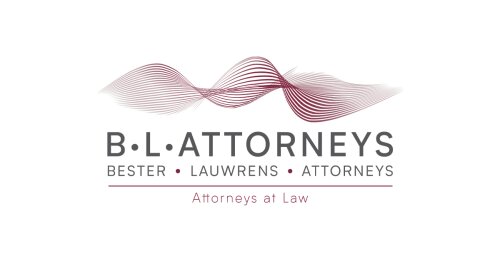Best Landlord & Tenant Lawyers in Cape Town
Share your needs with us, get contacted by law firms.
Free. Takes 2 min.
Free Guide to Hiring a Real Estate Lawyer
List of the best lawyers in Cape Town, South Africa
South Africa Landlord & Tenant Legal Questions answered by Lawyers
Browse our 3 legal questions about Landlord & Tenant in South Africa and read the lawyer answers, or ask your own questions for free.
- Can we evict tenants of our property if it is sold?
- May we evict the tenants of our property if it is sold. We have given them notice re this. They have not been paying rent nor deposit. We were very close of losing the house with the bank due to the tenants non payment
-
Lawyer answer by Recososa Law Firm
Hello:Under Philippine law, the rights of both the property owner and the tenants are governed mainly by the Civil Code and the Rent Control Act (if applicable depending on the rental amount). Since you mentioned that the tenants are not...
Read full answer - Eviction appeal
- Good day I had a tenant legally evicted and tool immediate occupation of my property she then went in later that day to her lawyers and got a re reentry court order, failing to disclose that I was already in the property. She and her boyfriend have broken in to... Read more →
-
Lawyer answer by SJ Law Experts
SJ Law Experts, IslamabadThank youSJ Law Experts, Islamabad [Advocates, Legal Advisors & Immigration Lawyers]
Read full answer - Is there a reason that my landlord is refusing to provide proof of putting my security deposit into an interest bearing account?
- The landlord at my former place of residence agreed to pay R8000 of my R11000 deposit after cleaning was done to the property. She provided a R2000 quotation fee but hasn't given me any other receipts to prove how the money was used. Despite that, I believe that cleaning was... Read more →
-
Lawyer answer by NARAG LAW OFFICE
That is not required by law. It is not even in the contract.
Read full answer
About Landlord & Tenant Law in Cape Town, South Africa
Landlord and Tenant law in Cape Town, South Africa, is governed by a combination of national legislation, local ordinances, and common law. The key legislative framework includes the Rental Housing Act and the Consumer Protection Act, which aim to safeguard the rights and responsibilities of both landlords and tenants. This legal area focuses on issues such as lease agreements, rental disputes, eviction procedures, property maintenance, and tenant rights. Understanding these laws is crucial for both landlords and tenants to ensure fair practices and harmonious rental relationships.
Why You May Need a Lawyer
While many landlord-tenant interactions proceed without issue, certain situations may necessitate legal assistance. Common scenarios where legal help may be required include:
- Dispute Resolution: When conflicts arise over lease terms, rental payments, or property maintenance, a lawyer can mediate or represent parties in court.
- Evictions: Navigating the legal requirements for a lawful eviction can be complex and challenging for landlords. Tenants facing unfair eviction may also require legal defense.
- Drafting Lease Agreements: A lawyer can ensure that lease agreements are comprehensive, legally binding, and in compliance with current laws.
- Understanding Legal Rights: Tenants may require guidance on rights related to privacy, upkeep, and termination of leases.
- Property Maintenance Issues: Disputes over property damages or responsibilities for repairs often require legal interpretation.
Local Laws Overview
In Cape Town, several key legal considerations impact landlord-tenant relationships:
- Rental Housing Act: This Act outlines the rights and obligations of landlords and tenants, highlights procedures for handling disputes, and establishes the Rental Housing Tribunal as a resolution body.
- Consumer Protection Act: Provides certain rights to tenants regarding the fairness of lease terms and honest advertising practices.
- Local By-Laws: These may impose additional requirements on landlords, such as property safety standards and zoning regulations.
- Common Law: An overarching law that addresses issues not specifically covered by statutory laws, including property rights and contract principles.
Frequently Asked Questions
What rights do tenants have in Cape Town?
Tenants have the right to a habitable living environment, privacy, and protection against unfair eviction. They are also entitled to a copy of the lease agreement.
Can landlords increase rent arbitrarily?
Rent increases must comply with the lease agreement terms and applicable regulations. Generally, notice of rent increase is required, and it should be reasonable and in line with market rates.
What can I do if I'm facing eviction?
If you face eviction, it's crucial to understand your rights and the legal process. You may object to the eviction through legal channels if it doesn't follow legal procedures.
How can a landlord legally evict a tenant?
Legal eviction requires a court order. Landlords must comply with the procedure set out in the Prevention of Illegal Eviction from and Unlawful Occupation of Land Act (PIE Act).
Who is responsible for property repairs?
Typically, landlords must ensure the property is safe and habitable, handling structural repairs. Tenants handle minor maintenance and keep the property clean.
Can I terminate my lease agreement early?
Early termination is possible if the lease permits or if both parties agree. Tenants may be required to pay penalties or cover the landlord's losses resulting from early termination.
What procedures should I follow if my landlord is withholding my security deposit?
If a landlord unlawfully withholds a deposit, you can seek recourse through the Rental Housing Tribunal or pursue legal action in court.
Can landlords enter the property without notice?
Landlords typically cannot enter rented properties without prior notice unless in emergencies. Lease agreements often stipulate the notice period.
Are oral lease agreements valid?
While oral agreements can be valid, they are difficult to enforce. Written agreements are recommended to clearly outline terms and facilitate dispute resolution.
What steps should I take if there is a dispute with my landlord/tenant?
Initially, attempt to resolve the issue directly. If unsuccessful, involve a mediator or seek assistance from the Rental Housing Tribunal or a legal professional.
Additional Resources
For further assistance, consider reaching out to the following:
- Rental Housing Tribunal: A body that provides free services for dispute resolution between landlords and tenants.
- Legal Aid South Africa: Offers free legal assistance to those who qualify financially, ensuring access to justice.
- City of Cape Town Municipal Offices: Provides information on local by-laws and other relevant directives.
- South African Human Rights Commission: Offers guidance on tenant rights in relation to human rights principles.
Next Steps
If you need legal assistance in landlord-tenant matters, consider consulting a lawyer specializing in property law. Begin by gathering relevant documentation such as your lease agreement, communication records, and any official notices received. Contacting the Rental Housing Tribunal can provide guidance and potentially mediate disputes. Ensure you know your rights and obligations before taking any legal action.
Lawzana helps you find the best lawyers and law firms in Cape Town through a curated and pre-screened list of qualified legal professionals. Our platform offers rankings and detailed profiles of attorneys and law firms, allowing you to compare based on practice areas, including Landlord & Tenant, experience, and client feedback.
Each profile includes a description of the firm's areas of practice, client reviews, team members and partners, year of establishment, spoken languages, office locations, contact information, social media presence, and any published articles or resources. Most firms on our platform speak English and are experienced in both local and international legal matters.
Get a quote from top-rated law firms in Cape Town, South Africa — quickly, securely, and without unnecessary hassle.
Disclaimer:
The information provided on this page is for general informational purposes only and does not constitute legal advice. While we strive to ensure the accuracy and relevance of the content, legal information may change over time, and interpretations of the law can vary. You should always consult with a qualified legal professional for advice specific to your situation.
We disclaim all liability for actions taken or not taken based on the content of this page. If you believe any information is incorrect or outdated, please contact us, and we will review and update it where appropriate.















